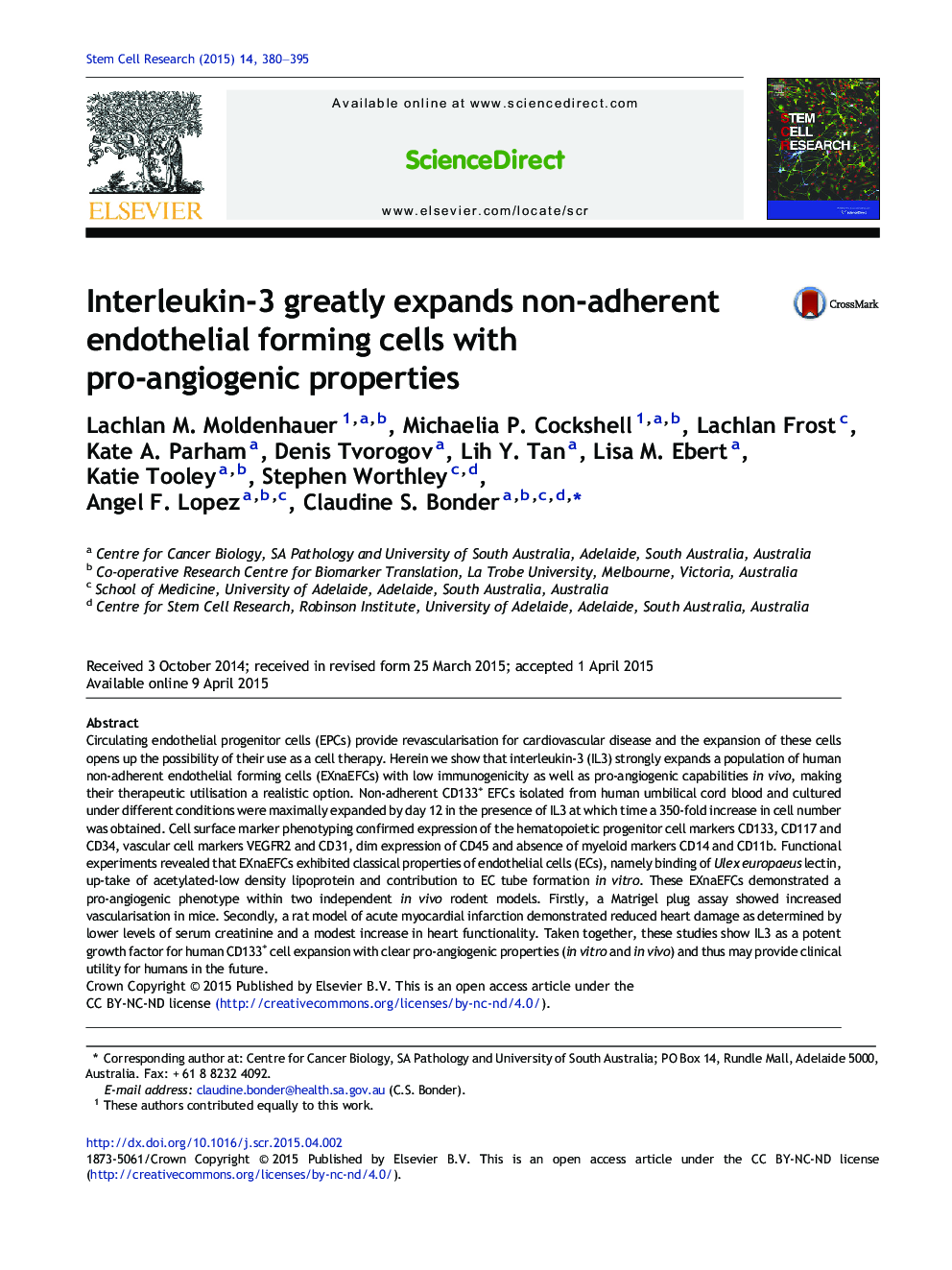| Article ID | Journal | Published Year | Pages | File Type |
|---|---|---|---|---|
| 2094191 | Stem Cell Research | 2015 | 16 Pages |
•Endothelial progenitor cells (EPCs) are of clinical interest as a cell therapy.•Increasing EPC numbers will provide the cells needed to reach clinical potential.•Interleukin-3 (IL-3) greatly expands human non-adherent endothelial forming cells (EXnaEFCs).•EXnaEFCs exhibit low immunogenicity.•EXnaEFCs are pro-angiogenic and partly restore infarct injury in vivo.
Circulating endothelial progenitor cells (EPCs) provide revascularisation for cardiovascular disease and the expansion of these cells opens up the possibility of their use as a cell therapy. Herein we show that interleukin-3 (IL3) strongly expands a population of human non-adherent endothelial forming cells (EXnaEFCs) with low immunogenicity as well as pro-angiogenic capabilities in vivo, making their therapeutic utilisation a realistic option. Non-adherent CD133+ EFCs isolated from human umbilical cord blood and cultured under different conditions were maximally expanded by day 12 in the presence of IL3 at which time a 350-fold increase in cell number was obtained. Cell surface marker phenotyping confirmed expression of the hematopoietic progenitor cell markers CD133, CD117 and CD34, vascular cell markers VEGFR2 and CD31, dim expression of CD45 and absence of myeloid markers CD14 and CD11b. Functional experiments revealed that EXnaEFCs exhibited classical properties of endothelial cells (ECs), namely binding of Ulex europaeus lectin, up-take of acetylated-low density lipoprotein and contribution to EC tube formation in vitro. These EXnaEFCs demonstrated a pro-angiogenic phenotype within two independent in vivo rodent models. Firstly, a Matrigel plug assay showed increased vascularisation in mice. Secondly, a rat model of acute myocardial infarction demonstrated reduced heart damage as determined by lower levels of serum creatinine and a modest increase in heart functionality. Taken together, these studies show IL3 as a potent growth factor for human CD133+ cell expansion with clear pro-angiogenic properties (in vitro and in vivo) and thus may provide clinical utility for humans in the future.
